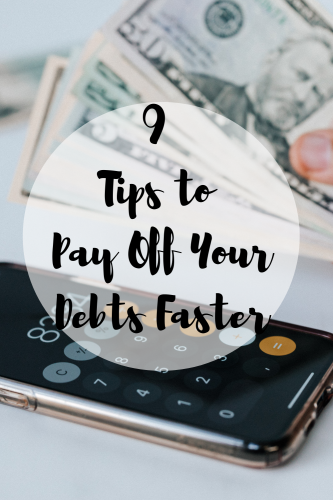
If your overall income is lower than your debts, not including your mortgage, or worried about making your next loan payment, you may have problem debt. Opposed to this is managed debt, which is when you have loan payments to make, but can make them without the debts exceeding your income, which is where you ideally want to be. It can be easy to go from managed debt to problem debt, though. It only takes a new credit card or finance payment to move you from one to the other, so keeping strict management of your debts, incomings, and outgoings is paramount. The tips below will help anyone with debt move from problem debt to managed debt if you have it, and then help you stay in a financially secure place.
Take stock
The simplest tasks are sometimes the most effective, but also the scariest. When you know your financial situation isn’t ideal, getting a full picture of your income and your debts can be painful. Still, they will ultimately make you feel significantly better. Start by making a list of your various debts, such as overdrafts, loans, and credit cards, and check how much you owe.
Make a budget
With a good handle on your creditors, you can then start to add in your income and other spending habits to get a full view of what money is coming in and where it’s going out. By understanding your monthly incomings and outgoings, you’ll be able to identify areas where you’re spending money where it isn’t necessary and make adjustments that could significantly impact how much you can pay on your debts. A mobile banking app like Monzo will track monthly spending, and give you a breakdown of where you’re spending your hard-earned money. You may find that you’re spending far more on eating out than you expected, and could save a significant amount of money each month by reducing this.
Check your credit score
If you have several debts and loans, checking your credit score is an essential step in reviewing your overall financial situation. Checking your credit score will help you see if you’re eligible to borrow money in the future, which may be necessary if you have limited savings. If you find that your loans have negatively impacted your rating, you can improve it. Some simple steps you can take to improve your credit score are registering to vote, and ensuring you pay your rent on time every month. Several credit cards are made to improve your credit score, but be warned that they often have high interest if you fail to make a payment, so make it a priority to pay this by direct debit every month.
Prioritize paying off debts
If you have very few savings, it can feel like the main priority is to save, but if you have debts, it’s essential to focus on paying them off before you think about saving. The average interest on a credit card or overdraft is far higher than what you’ll achieve in a savings account, meaning that you’re losing a significant amount by not prioritizing eliminating your debt. If you have several loans, an effective approach focuses on the one with the highest interest first, and then the remaining debts off in the same order. Also, if you have savings in the bank and loans with high interest, it makes sense to pay off as much as possible with this money, rather than saving it and hemorrhaging money every month.
Seek out debt solutions
If your debt is becoming unmanageable, and you feel that you won’t make your next payment, there are options available to you. Depending on your situation, you can access an independent voluntary arrangement, which takes all of your debt. A company like Jubilee 2000 can create an agreement to pay them over several years, with the debt being erased after this time. If you’re interested, find out more about Jubilee 2000 UK and its services.
Manage your mental health
A quarter of people in the UK experience mental health issues every year, which is made worse by worrying about your financial situation. If you find that you’re struggling, some charities and organizations provide help and guidance for both mental health and finance for free, such as Elefriends and StepChange.
Check your tax code
Depending on your job, it’s always good to check your tax code to make sure you’ve paid the right amount of tax and not owed anything. In the UK, the most common tax code is 1250L, but if you work part-time or have shifts, you may need to be on a different code.
See if you’re eligible for a marriage allowance
If you’re married and have one person who’s a non-taxpayer and the other a basic taxpayer, you’ll likely qualify for an HMRC marriage allowance. The allowance has been available since 2015, and allows the lower earner to transfer some of their minimal tax-free allowances to the other. This can be backdated for up to four years and could result in free cash you’ve been sitting on.
Sell your unused stuff
A good way to make some quick cash is to sell any clothes, furniture, or toys that you no longer use or that your children have grown out of. eBay, Gumtree, and Facebook marketplace are easy ways to sell items lying around the house quickly and get some money to put toward your next loan payment, with clothes and old gaming consoles being a very active market. It’s also worth checking any old bank or PayPal accounts that may have money in that you’ve forgotten about, as this can add up quickly and help to cover the cost of a bill you’d have otherwise struggled to pay.





Leave a Reply